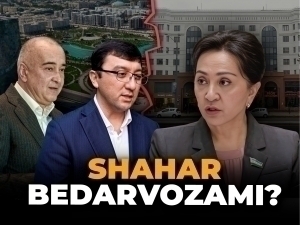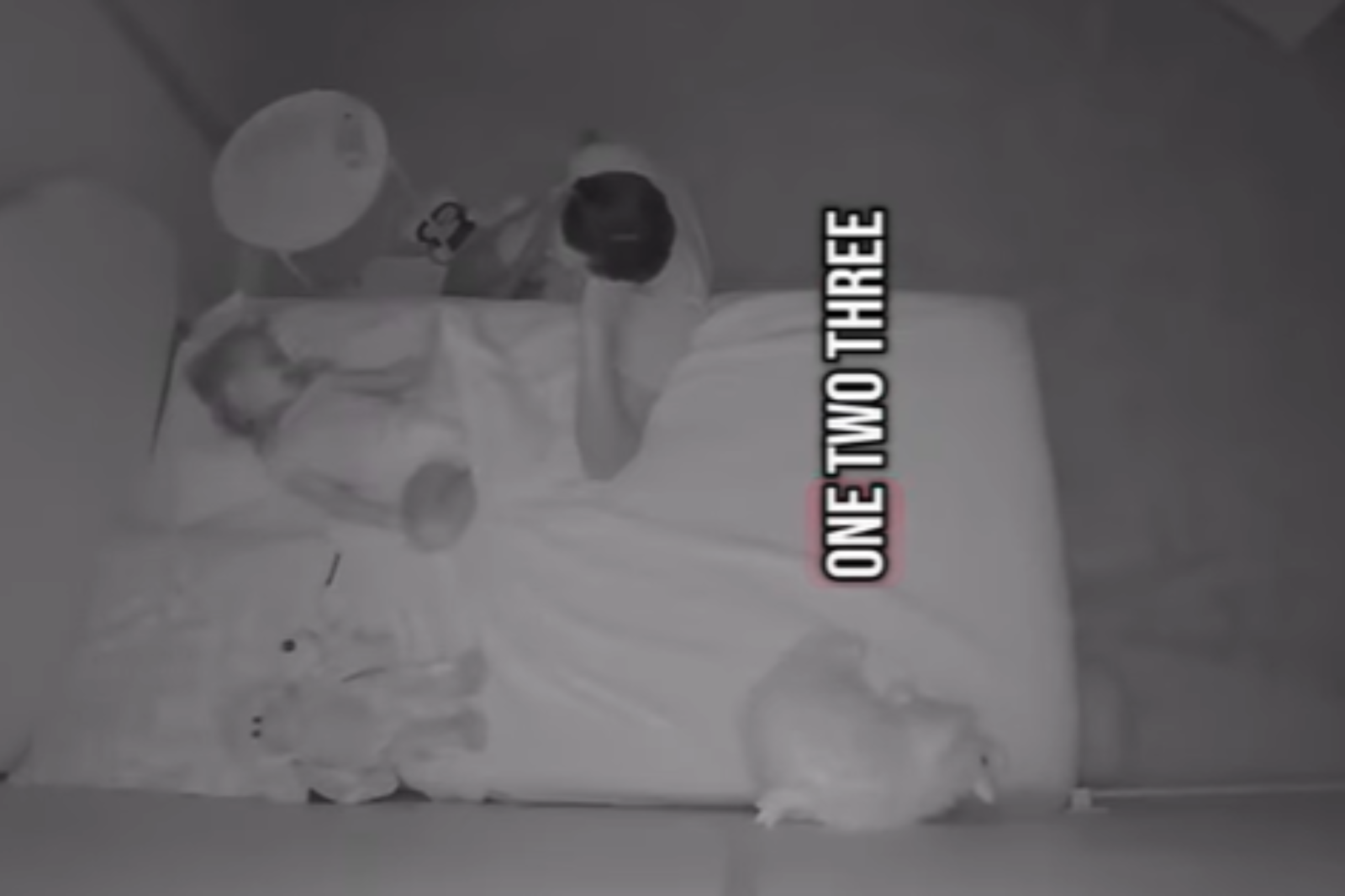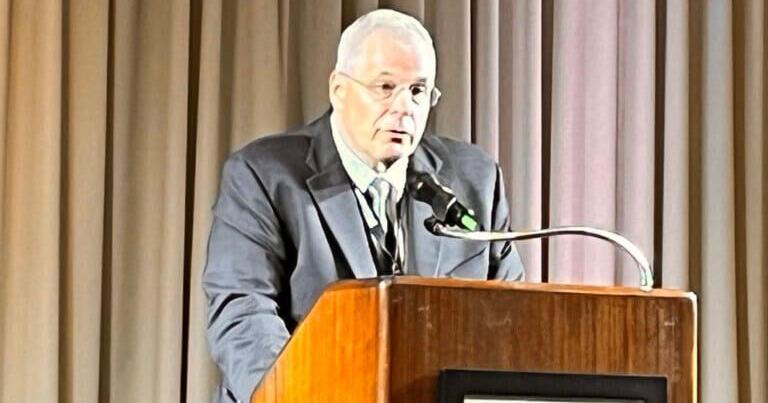Copyright qalampir

Residents living in apartment buildings along Alisher Navoi Street in the capital told QALAMPIR.UZ that a plot of land once designated as a parking area has long been fenced off with metal barriers and is now being handed over to a private entrepreneur. According to residents, the eight apartment buildings located along Navoi Street were constructed between 2011 and 2013, and the adjacent area was used as a parking lot until 2018. When the “Tashkent City” project began, the area was fenced off, allegedly to protect residents from dust. It has now been allocated to an entrepreneur to build a private school. The issue concerns a plot of land in the Shaykhantakhur district of Tashkent, within the “Olmazor” neighborhood, located between the “Tashkent City” complex and the apartment buildings along Navoi Street. When our team visited the site to investigate the residents’ complaints, Hojikabar Apponov, the project manager for the planned construction, was also present and attempted to explain the project to residents. Showing them construction plans, he faced skepticism as residents said the documents lacked official approval and did not specify any measurements. It should be noted that residents are referring to a decree issued by the then-Prime Minister, now President Shavkat Mirziyoyev, on May 17, 2011, and a subsequent order from Rahmonbek Usmonov, who was acting as Tashkent mayor at the time and later served for seven years. The residents claim these documents supported the allocation of the land for residential use. Despite having invested their own labor and money to develop the green area and parking space, residents say two plots of land were later put up for auction without any consultation. Residents learned verbally that the parking lot had been transferred to a private entrepreneur and the green area to the “Tashkent City” administration. They hired a lawyer and sent official inquiries to determine under which legal documents these actions were carried out but received no clear response. Residents compare the allocation of this land to the entrepreneur, despite earlier government decisions, with the kind of issues President Mirziyoyev himself has publicly criticized. “Go to your father, go to your mother!” It remains unclear how the area originally intended for a parking lot was suddenly turned into a school site, or how it was even listed for auction. QALAMPIR.UZ contacted several agencies to clarify the matter. The Tashkent City Hall told us to contact the Shaykhantakhur District Administration. The district authorities stated that the plots had been listed by the Cadastral Chamber on the “Yerelektron” platform, a system for allocating non-agricultural vacant land. The district construction department reportedly submitted the plots to relevant agencies for review through the system. Once positive conclusions were received, the plots were put up for online auction and leased to “Ozun Tashkent Construction” LLC. According to auction records, both plots were auctioned on March 24, 2025. The vacant plots, measuring 0.36 and 0.29 hectares, were leased to “Ozun Tashkent Construction” LLC for the construction of a private school and kindergarten. The 0.36-hectare plot was sold for 10.957 billion soums, and the 0.29-hectare plot for 8.827 billion soums. Details about the transparency of the auction and other participants remain unclear. What is known is that only two companies competed in each auction, but the names of the losing bidders were concealed by ID numbers under auction rules. In a prime city center location like this—one that most entrepreneurs would dream of—shouldn’t there have been far more bidders? Returning to how the plots were auctioned off, we contacted the Cadastral Chamber based on information from the district administration. The chamber’s response prompted us to contact the Tashkent City Hall again, as it stated that the 0.36-hectare plot had been transferred to the reserve land fund under the order of Tashkent Mayor Shavkat Umurzakov dated September 24, 2024, and was uploaded to the “Yerelektron” system on March 5, 2025, for auction. QALAMPIR.UZ reviewed Mayor Umurzakov’s decision on transferring the land to the reserve fund. The document states that it was issued to implement Cabinet of Ministers Resolution No. 519 of August 19, 2024, “On measures to develop new urban facilities in the Tashkent City International Business Center area.” The decision includes the transfer of a 0.29-hectare plot located between Hadra Street’s apartment blocks and the “Gardens” residential complex, within the Shaykhantakhur district, to the reserve fund. Here, several inconsistencies arise. First, the text of the Cabinet’s Resolution No. 519 mentioned in the mayor’s order could not be found in any open sources. Second, while the Cadastral Chamber cited the mayor’s decision as the legal basis for auctioning the 0.36-hectare plot, the decision itself refers only to the 0.29-hectare plot—suggesting a possible documentation error. Moreover, given that land in this central part of Tashkent can exceed $100,000 per sotik, the auction prices—roughly $860,000 for 0.36 hectares and $695,000 for 0.29 hectares—mean each sotik cost under $24,000. Though the land was leased, the auction prices appear surprisingly low for such a prime location. The developer — a company previously accused of tree cutting The construction company’s identity raises further questions. “Ozun Tashkent Construction” is widely known for its involvement in a previous scandal when nearly 700 trees were cut down or damaged during the construction of the “Seoul Mun” entertainment complex along the Borijar Canal in Chilanzar District. At that time, the same company—linked to a foreign investor—was accused by the public of environmental damage. Satellite images of the deforested area caused outrage online. This brings into question the fate of the green zone that residents claim was transferred under “Tashkent City” management without documentation. When asked about this, project manager Apponov said such incidents would not occur. He stated that the project would include not only a private school and kindergarten but also landscaping, an underground waste storage facility, and a parking lot for 600 vehicles. However, residents fear that this parking lot may serve “Tashkent City” visitors rather than local residents. They point out that many of their past concerns also began with verbal promises that were never fulfilled. Currently, residents say they would agree to the project if the road, parking, and waste facilities are built on the “Tashkent City” side and if the green area is preserved. Yet they insist that only written guarantees—not verbal assurances—would earn their trust. What is Ortikhodjayev’s connection to “Ozun Tashkent Construction”? “Ozun Tashkent Construction” LLC, engaged in residential construction, was established in 2018 by the Turkish company “Ozun Insaat Yatirim Danismanlik.” This company is also the main investor behind the “Olmazor City” residential complex, a $130 million project. According to open sources, the entity that submitted the application for “Ozun Tashkent Construction” is none other than “J-UNITED GROUP” LLC, owned by former Tashkent Mayor Jahongir Ortikhodjayev. In short, the events surrounding these plots—situated in the heart of “Tashkent City”—appear to make more sense now. Although Ortikhodjayev was dismissed from his post, his influence seems to still reach City Hall. Project representatives claim the new facilities will be “social infrastructure” and will beautify the area. Residents, however, argue that any paid service cannot be considered social. A school is undoubtedly a valuable institution, they say, but question for whom it is being built. On one side lies “Tashkent City,” home to the wealthy; on the other, ordinary apartment buildings. If that is the case, why not build a public school here? Many families cannot afford the tuition fees of private schools, especially since a private school already operates nearby. The sequence of events suggests that the new facilities are designed primarily for affluent “Tashkent City” residents, while the needs of ordinary citizens living next door risk being overlooked.



